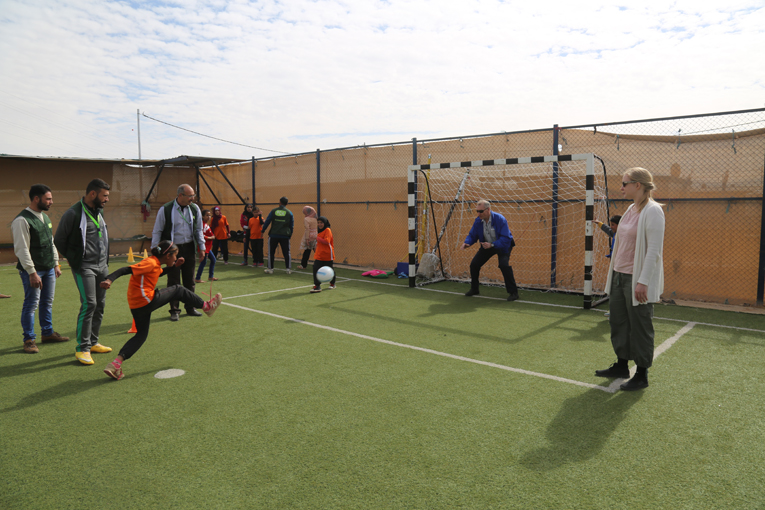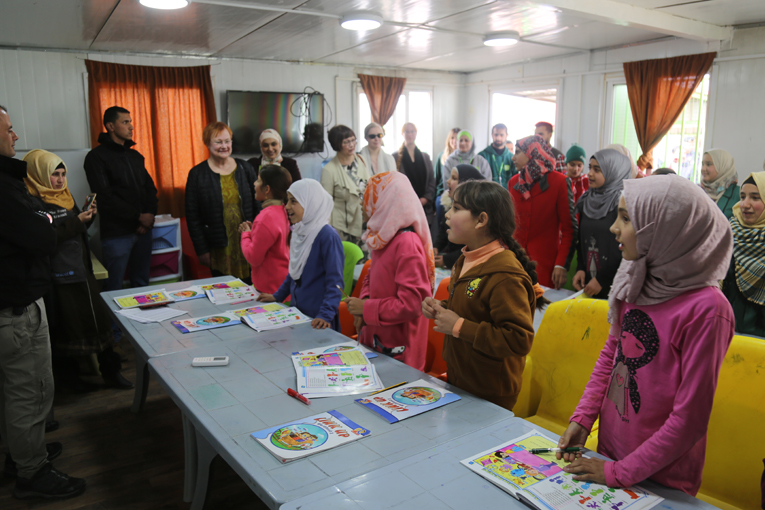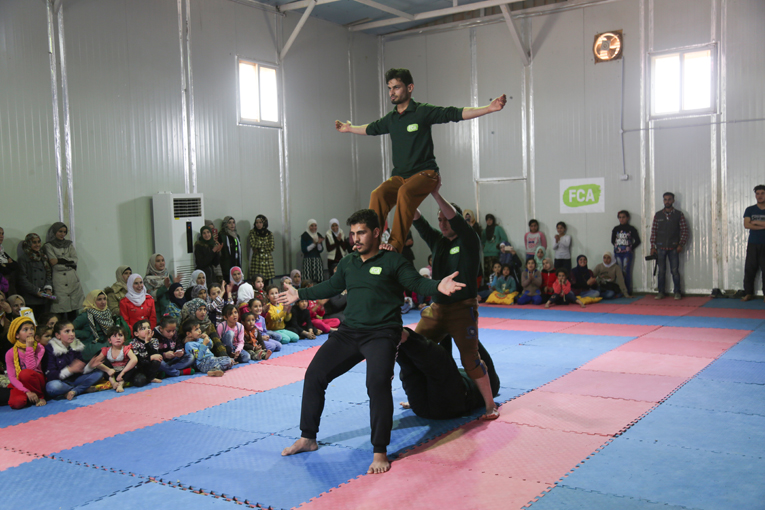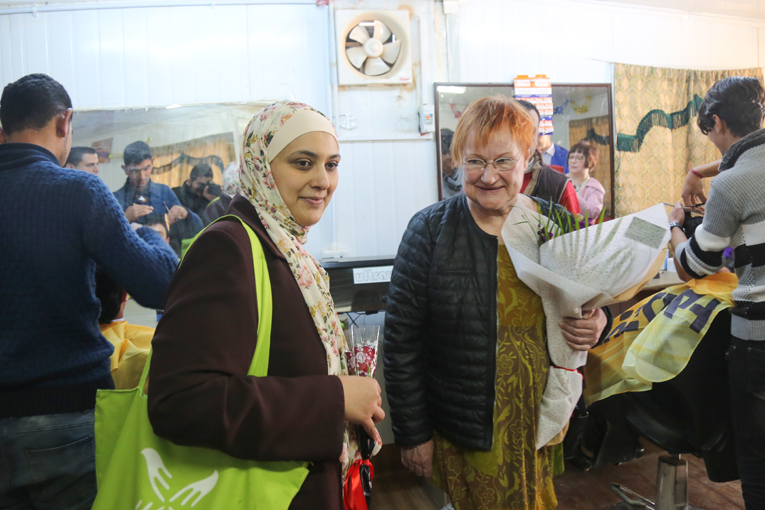Refugees were moved by president Tarja Halonen’s visit: Don’t forget about us
President Tarja Halonen got an enthusiastic reception from refugees at Za’atari camp in Jordan. With her visit, she wanted to show her support to FCA’s work with Syrians.
Girls’ football practice electrifies when Tarja Halonen shows up at the edge of the field. A female president is not a common sight in the Middle East, and the girls want to show their skills to the best of their abilities.
The refugees at Za’atari have hardly ever taken so many photos of a visitor.
”When an eight-year-old refugee girl gets to play football at a refugee camp and realises she is as good as her brother, what an effect it has on the girl’s self-esteem,” Halonen muses.
”I hope her future is good as well.”

The girls wanted to impress the visitors at the FCA football field at Za’atari. Photo: Mohammed Barhoum.
On Tuesday, Halonen visited the Za’atari refugee camp in the middle of the Jordan desert. The purpose of the journey was to update the president’s knowledge on the Syrian refugee situation and to support Finn Church Aid’s (FCA) work for her part.
Chair of FCA board Tarja Kantola and Finnish ambassador in Beirut Matti Lassila joined her.
The camp, founded six years ago, has almost 80,000 refugee inhabitants, and although new refugees are no longer admitted, the population grows with 70 to 80 newborn babies every week. FCA’s operation at Za’atari began in early 2013. FCA has become famous at the refugee camp with projects such as its circus school, with acrobats and clowns making an impression on Halonen as well.
In addition, the president visited courses on English, music, and information technology. The hairdresser course students would have loved to cut and sculpt the hair of Halonen and those in her group into completely new shapes.
Halonen considers it important to continue offering education and hobbies.
”The education, employment, and hobbies offered by FCA has a significant impact on the refugees’ self-esteem, and they should therefore continue,” she says.
Finnish businesses could help in crises
It is becoming increasingly hard to secure funding for a refugee crisis. Halonen finds it sad that funding for non-governmental organisations has decreased significantly in Finland. Even though politicians have stressed in speeches that the situation should be handled on location, necessary funding has not been granted. Furthermore, Finland should not return asylum seekers to their countries of origin, if the requirements for a decent life do not exist.
In Za’atari, Halonen also sees lots of opportunities for Finnish businesses to create innovative solutions to improve camp conditions. As an example, she brings up accommodation containers in which families are living.
”The containers are cold in the winter and hot in the summer. Would Finnish wood structures have a niche in accommodating refugees as well,” she muses.
”Finnish businesses are often too cautious and too prejudiced in marketing themselves in a crisis region.”

At Za’atari, people both live and work in construction site containers. In the photo, Tarja Halonen visits an English class for children and youth. Photo: Mohammed Barhoum.
Syrians have already started to return to Syria from Jordan, but according to the UN, returning is not safe. The war has gone on for almost seven years, and the infrastructure of the country is in shambles. Fighting is still going on across the country. In recent days, the UN and international organisations have expressed their shock over the bombing of civilians in eastern Ghouta.
The message of the refugees in their encounters and photos with the president to everyone in Finland was: don’t forget about us.
”We should be offering the refugees light and warmth,” says Halonen.
Text: Olli Pitkänen Photos: Mohammed Barhoum
The author is the FCA Regional Programme Manager of the Middle East.
Read more about FCA’s work in Jordan here.

The students of the circus school arranged a performance to honour the president’s visit. Photo: Mohammed Barhoum

Tarja Halonen follows eager barber students at their work. Photo: Mohammed Barhoum.